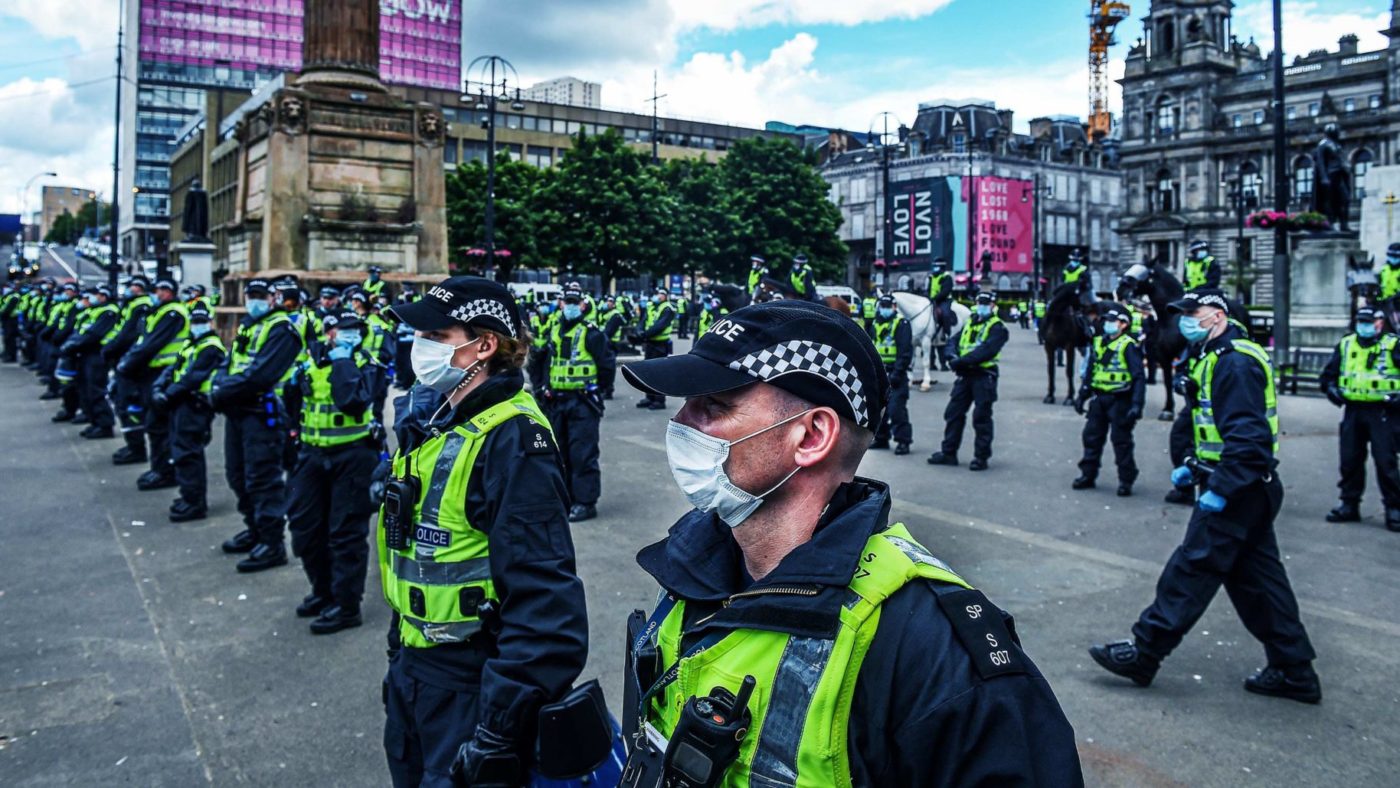I’m just over half way through my second cover-to-cover reading of the Bible, and it’s heady stuff. Well, apart from all the boring genealogical details. Those who haven’t ever read the book often assume that the most “offensive” passages are those that discuss homosexuality (which isn’t as often as you might think) or women’s rights.
Personally, the passage I find most disagreeable is the Psalm which celebrates infant murder: “Happy is the one who seizes your infants and dashes them against the rocks.” A bit harsh, if you ask me. But if you find homophobia, misogyny, mass murder of civilians and advocacy of slavery personally offensive, then the Bible probably isn’t for you.
This explains why Roman Catholic Bishops in Scotland are worried about the prospect of the Hate Crime and Public Order (Scotland) Bill becoming law.
In a submission to the Scottish Parliament’s Justice Committee, which is examining the legislation, the Bishops’ Conference of Scotland warns the new bill “could render material such as the Bible, the Catechism of the Catholic Church and other texts such as Bishops’ Conference of Scotland submissions inflammatory under the new provision”. Among the tenets of Catholicism that could fall foul of the new legislation, they note, is “the belief that sex and gender are not fluid and changeable, and that male and female are complementary and ordered towards the creation of new life”.
This comes in the same week the Scottish Police Federation submitted its own response to the legislation, warning that the new law could “devastate the legitimacy of the police” and end up with officers policing people’s speech.
How did we arrive at a position where these two institutions of Scottish civic life have been recruited to fight the latest round of the culture wars? And what value can we place on Scottish ministers’ assurance that the bill poses no threat at all to freedom of expression, but simply aims to update hate speech laws for the 21st century?
Well, for a start, there are no circumstances in which any minister of any political party would admit that their plans aim to curtail free speech, whatever they believed the consequence of a new law might be. But to understand the mindset of the terminally woke individuals who support this legislation, we should divert our attention southwards, to Westminster, where a Labour frontbencher last week argued that “we must not fetishise ‘debate’ as though debate is itself an innocuous, neutral act. The very act of debate in these cases is an effective rollback of assumed equality and a foot in the door for doubt and hatred”.
This remarkably honest approach reveals much about what Nadia Whittome, the MP in question, and her woke allies in Scotland and throughout the world want to achieve: restrictions on open debate at the behest of anyone who decides to express offence, or even indignation, at another person’s opinion. And now this mentality has taken hold in one of the nation’s devolved parliaments.
Whatever the assurances given by ministers and Scottish government spokespersons, we can be sure that if this nasty piece of legislation makes it to the statute books – and given the eagerness with which the über-woke Scottish Green MSPs vote with the SNP whenever they’re asked, it could well do so – it will certainly be used as an excuse by certain individuals and organisations to at least try to shut their opponents up. And even if the safeguards which ministers insist are contained in the legislation are as robust as claimed, there can be little doubt that police officers’ time will be diverted from actual police work to taking lengthy statements from the professionally and permanently offended about how this or that person was a bit mean to them on Twitter.
It has even been suggested that JK Rowling’s comments about transgender issues would have made their author vulnerable to criminal action – which is surely one of the reasons why at least certain MSPs are enthusiastic about supporting the bill.
It all comes down to an assertion – one that is often made but rarely challenged – that writing or saying something offensive is in itself violence. Actual, real violence. Placing a rude tweet in the same category as an actual physical assault against, say, a vulnerable woman or a transgender person, is itself pretty offensive.
Interestingly, a blog post by the Scottish government last month sought to fight back against the onslaught against the bill by claiming that it “will not prevent people expressing controversial, challenging or even offensive views, as long as this is not done in a threatening or abusive way that is intended to stir up hatred or likely to stir up hatred.”
In other words, the decision about whether a publicly-expressed comment should become the subject of court action or not will depend on a subjective judgment. I think it’s clear that Rowling’s comments on transgenderism, for example, are perfectly acceptable and a valuable contribution to a public debate. Others – perhaps those MPs who believe that open debate itself is offensive – might consider her words a deliberate attempt to whip up “hatred” towards transgender people.
And so we take another step towards a dystopian future in which a small minority of activists coerce democratically-elected (but gullible) politicians to enforce their own narrow worldview on everyone else, at pain of imprisonment. You might have heard the expression, “No one has the right not to be offended”. If the Hate Crime and Public Order Bill makes its sorry way onto the statute books, then there’s a very good chance that here in Scotland, that will no longer be true.
Click here to subscribe to our daily briefing – the best pieces from CapX and across the web.
CapX depends on the generosity of its readers. If you value what we do, please consider making a donation.


